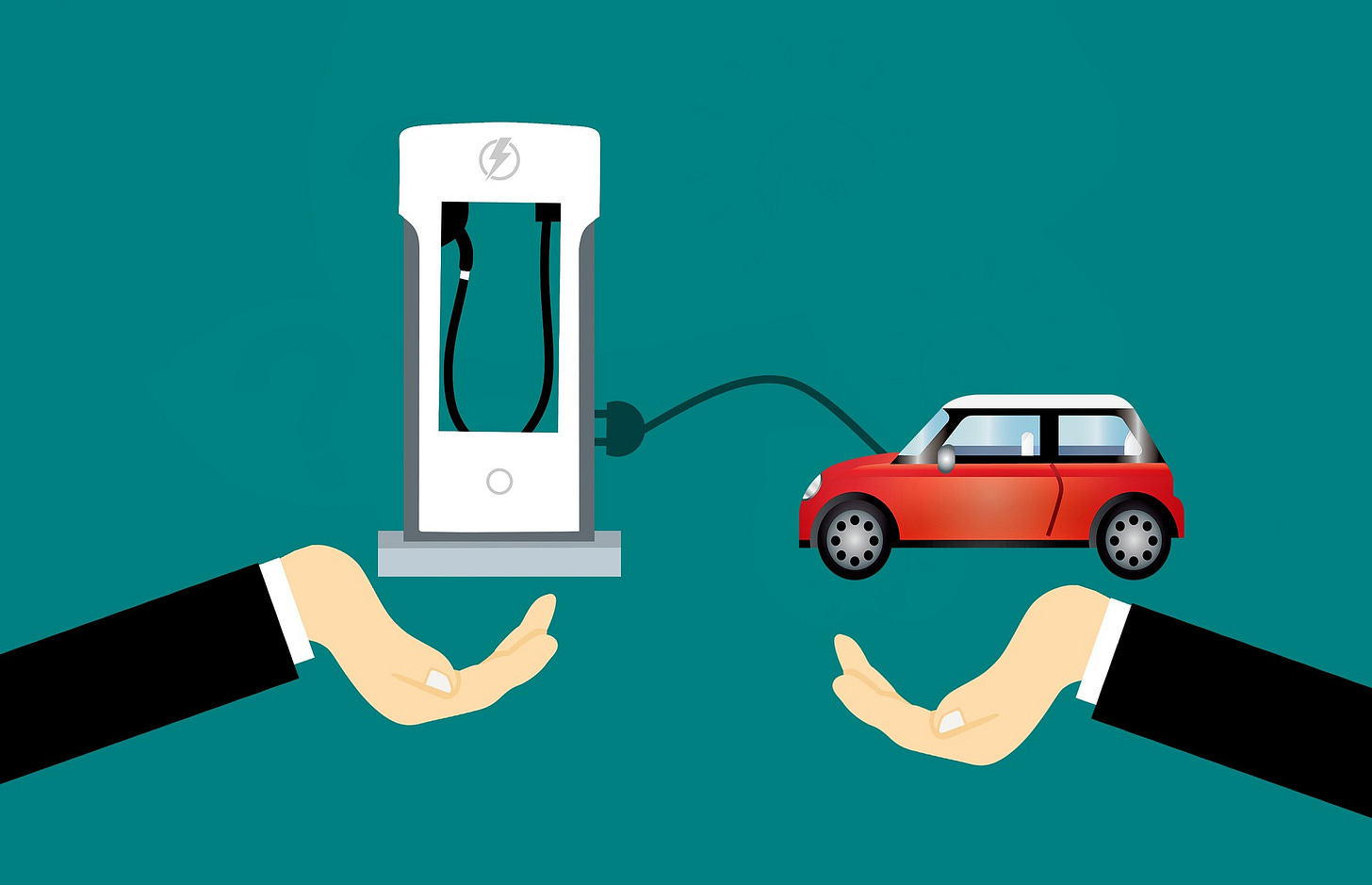A few dozen charging points and almost a quarter of a million cars
The scale of the challenge to create an electric car charge network in North Northamptonshire by 2030 will be discussed this week
By Sarah Ward
A report exclusively seen by NN Journal has set out the scale of the challenge to create an electric car charging network in the North of the county within the next decade.
Three years ago in its ‘Road to Zero Strategy’ the Conservative government announced a ban on the sale of new petrol and diesel cars and vans from 2030 (and hybrid vehicles from 2035).
A new report to be discussed by the unitary council’s executive advisory panel for climate change, environment and growth on Wednesday, has set out the huge upscaling of the local charging network that will be needed to energise the thousands of extra electric cars that will be driving on the roads within the next decade.
Currently there are only 26 publicly owned usable charging points in North Northamptonshire; six in Corby, 16 in Kettering and four recently arrived in Wellingborough in the Swansgate Centre. A further 28 are due to come into operation later this year and there are 45 privately operated electric vehicle charging points across the area, which are mainly in towns with very few located in the villages.
With 230,500 cars registered in the area last year, 1,896 of which were electric (less than one percent), the ratio of electric cars to charging points is one for every 26 cars, which is below the current national average of one for every 19 vehicles.
There is no set standard on the ratio of electric vehicles (EV) to chargers but the UK Climate Change Committee (CCC) suggested it should stand at around a charger for every 50 vehicles.
The unitary council’s report, says:
“Assuming the vehicle fleet size of 230,500 remained constant (and all electric) we would require a network of about 4,610 publicly available EVCPs to comply with the CCC ratio of 1:50.
“This compares to the current provision of approximately 100 (by end of 2021). It is acknowledged, however, that the situation is more complex than this and various factors will influence future provision and demand. These include:
The rate of growth in EVs and their use, including the impact of future housing growth – EV ownership grew by 28% in the area between 2019 and 2020
The attractiveness of other forms of transport, including shared modes, and their ability to provide alternatives to car use
Advances in technology, making it possible to charge more quickly and/or increase battery range
Alternative forms of charging, such as induction charging
Alternative energy sources, such as hydrogen, and their impact
The ability to ‘home charge’, therefore providing an alternative to use of public EVCPs
The EVCP marketplace, capacity and competition
Capacity of the local network operated by the District Network Operator (DNO) which is Western Power
New policies, financial incentives or other measures introduced by Government or locally
The committee, which is made up of backbenchers from across the political parties, will be asked to look at the issue and discuss options of possible policy ideas.
The report says the local authority can directly influence the number of new electric charging points through its role as a planning authority by insisting new developers build in charging points. It also could set up more within its car park estate.
Grants are also available to help pay for charging points - the Government’s Office for Zero Emissions Vehicles (OZEV) currently pays three quarters of installation costs -, and the report says “with EVCPs a ‘hot topic’, it is expected that further schemes and funding will be announced by Government to help stimulate the growth of public EVCP.”
But the report says the ownership of the growing network will also need to be an important consideration. The former Corby Borough Council, which was an early adopter of electric charging points, owns its networks, which has the benefit of bringing in an income but comes with maintenance and repair costs. The authority could also choose to outsource the network and instead just play a strategic role.
Recently oil firm Shell announced a major installation of on street chargers across the country and says it will pick up the remaining quarter of installation costs which local authorities are paying that are not covered by OZEV grants.
While finances are not included in the report it says,” whichever route the Council follows will have resourcing considerations.”
A similar report is yet to come forward to the west unitary, which currently oversees the highways service for both unitaries as part of a shared agreement until the authorities can stand alone.
Our journalism is only possible thanks to our paid subscribers. We need to keep growing theses numbers to keep going. Please think about signing up to our £5 a month subscription, which gives you the full five days a week news package.


How is West Northamptonshire doing?